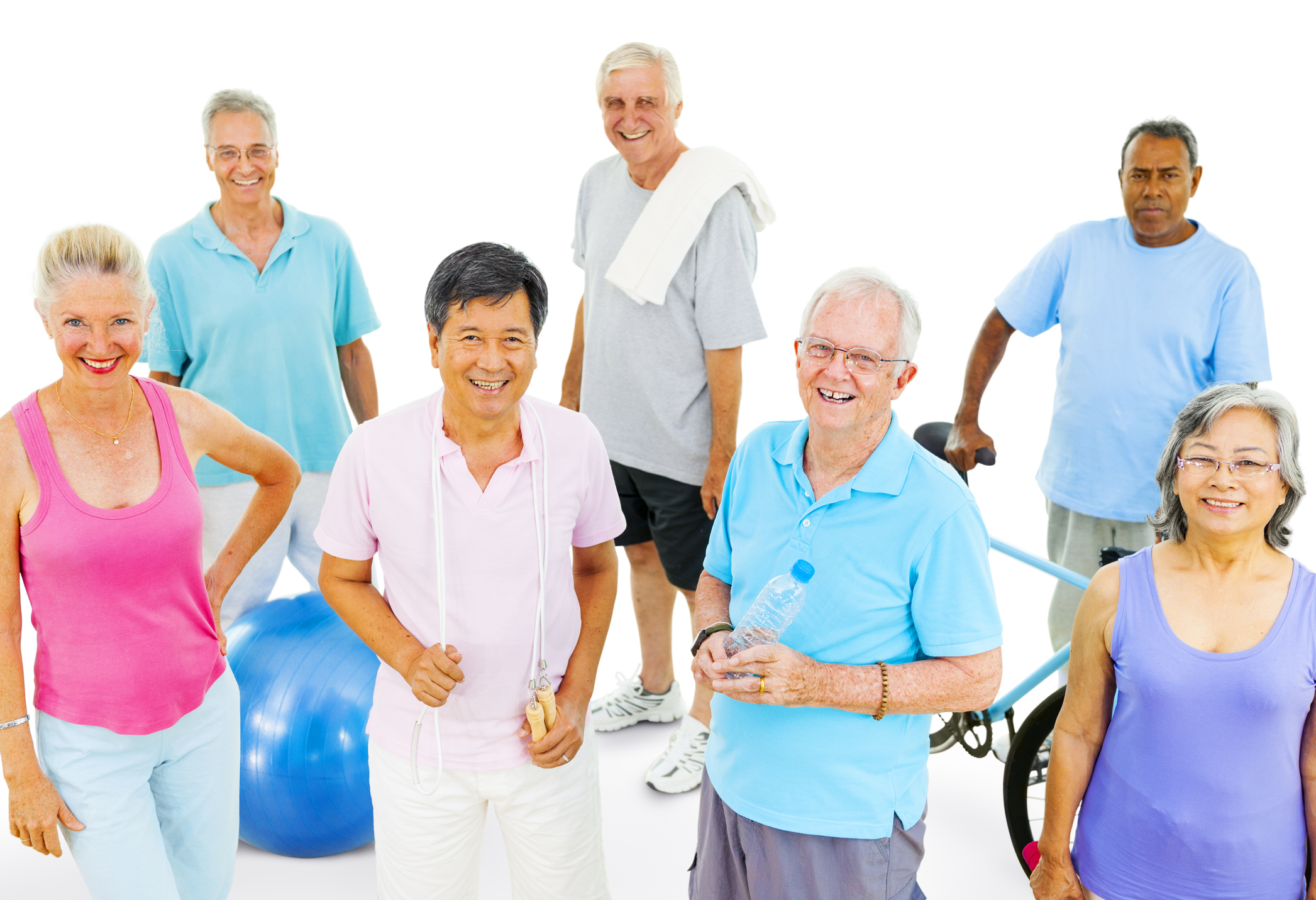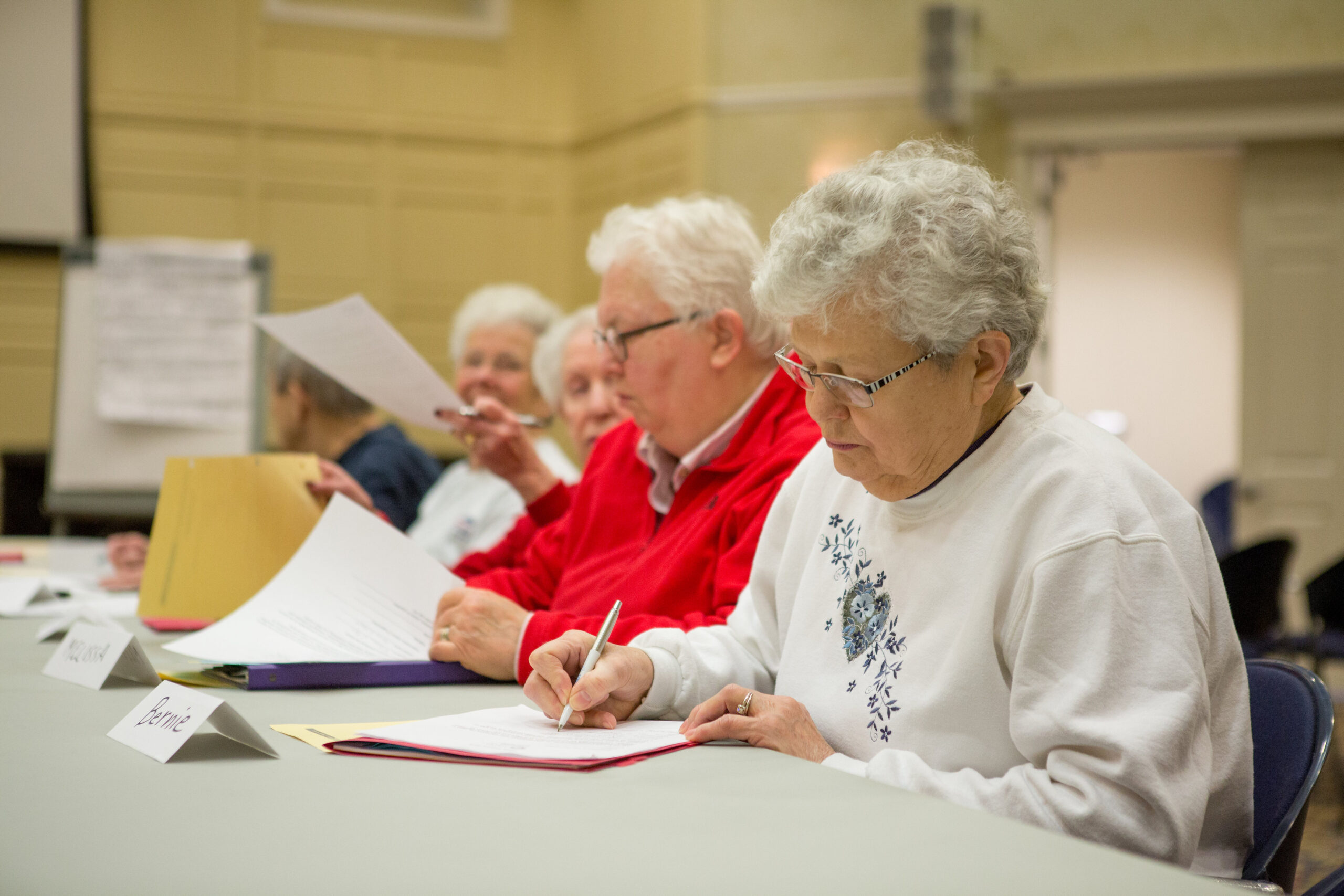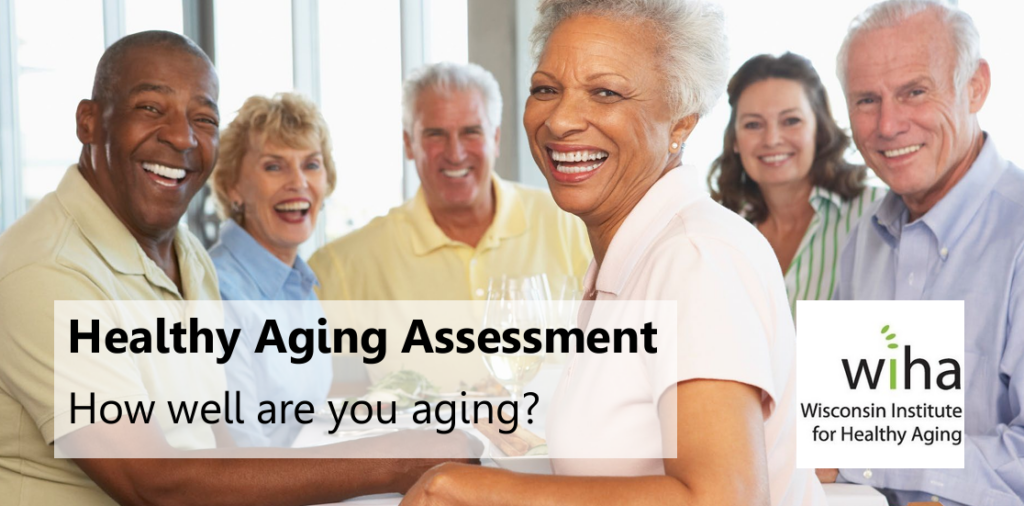We all want to age well. To be free of chronic diseases and sicknesses. To feel strong and independent. But what does it take to get there?
Find out how well you’re aging. Take the assessment today!
Learn more about what WIHA is doing to help you Age Well
Discover programs to help you Age Well
Watch the Age Well Series
8 Dimensions of Wellness
Wellness is an all-encompassing term. Individual health may be broken up into different categories, known as the 8 Dimensions of Wellness. To age well, it is important to pay attention to each dimension. No dimension needs to have perfect health, but if one dimension is severely lacking, that can have a big effect on our health. It is best to pay attention to each dimension as we age. Click below to read more about the 8 dimensions and to find what WIHA can offer you in these areas.

Movement. Nutrition. Sleep. Disease.
Although some chronic conditions may be hereditary, physical health is largely impacted by our lifestyle choices. How active we are. How healthy we choose to eat. How much sleep we get. How we’re able to manage stress. Limiting our consumption of alcohol. Making sure we’re seeing our doctors as needed. Avoiding smoking. These are all choices we make for ourselves.
All of WIHA programs can help you to improve or manage your physical health. Physical health includes several categories, as seen below.
Physical Activity: Should be an appropriate activity for the level of fitness and skill. In addition, it’s important to focus on flexibility and strength training to improve or prevent joint pain or issues, and balance to eliminate or reduce risk for falls. Find out how to get started with exercise from the National Institute on Aging. They also provide an excellent Exercise and Older Adult Toolkit to help people at any level get started or keep going. Or, learn how to Move Your Way from the US Department of Health and Human Services.
Nutrition: The United States Department of Agriculture and the Department of Health and Human Services develop the Dietary Guidelines for Americans. See the Build a Healthy Eating Routine as You Get Older pamphlet. The National Institute on Aging offers tips for Healthy Meal Planning. Our partners at the Greater Wisconsin Area Agency on Aging have developed a great site to help you take steps towards healthy eating. Check out NOURISH Step.
Sleep: Getting enough sleep can prevent disease. The National Institute on Aging at NIH recently developed this guide: Sleep and Older Adults: How to Get a Good Night’s Sleep. The American Heart Association has a 4-Week Plan to Better Sleep.
Hearing and Vision Loss: can also impact many dimensions of wellness and increases one’s risk for several chronic conditions and falls. To learn more, check out these articles from the National Council on Aging on Hearing and Vision loss.
Brain Health: Part of your physical health which is influenced by other aspects such as physical activity, nutrition, sleep, and even hearing loss! Concerened about your brain health? Check out this Brain Guide Questionnaire developed by USAgainstAlzheimer’s.
Lastly, having routine medical care with a healthcare professional is important. Check out the My Health Checklist from the Institute for Healthcare Improvement to learn how you can prepare for your exam.

Anger. Fear. Sadness. Love. Joy.
The ability to acknowledge and share feelings of anger, fear, sadness, hope, love, joy, and more. The ability to cope with challenges. Behaving in a trustworthy and respectful way.
The mind-body connection goes deeper than many people realize. Individuals who have a positive perception on aging live an average of 7.6 years longer! Our thoughts impact our quality and quantity of life! Check out this article on how positive attitudes about aging may pay off in better health.
Depression affects more than 264 million people worldwide. Stress can cause:
Finding help or ways to manage our feelings improves our emotional health. To find ways to cope with stress, visit CDC: Mental Health. Check out the How Right Now site from the CDC to find trusted resources that can help us through a range of emotions everyone faces.
Learn more about healthy minds from the Healthy Mind Institute at the University of Wisconsin, Madison.

Air. Water. Land.
Being in an area that promotes health and well-being by promoting active transportation (walking, biking, etc.), having good soil to grow fresh foods, being free of toxins and waste, and having greenery to promote and encourage spending time outdoors safely.
Contributing to the environment by caring for the air, water, and land surrounding us.
Learn more about environmental health from the U.S. Department of Health and Human Services.

Spending. Saving.
Understanding your financial situation and taking care of it to prepare for or avoid financial challenges. Being comfortable with where your money comes from and where it’s going.
Older people are often targets of scams and fraud. Learn how to avoid these from the National Council on Aging.
Financial planning includes planning for after you’re gone. The National Council on Aging partners with the nonprofit organization FreeWill. This organization offers free estate planning resources to help you navigate critical decisions. In addition, the National Institute on Aging provides information on Advanced Care Planning to prepare for after you

Learn. Grow. Apply.
Cognition (n) The mental action or process of acquiring knowledge and understanding through thought, experience, and the senses. -OXFORD DICTIONARY
The ability to open our minds to new ideas or experiences. Lifelong learning of concepts, ideas, and skills helps to improve our intellectual health, or cognition.
One study showed that learning multiple things at once improves the cognitive abilities in older adults similar to those 30 years younger!
Whether it’s a WIHA class, reading, picking up a new hobby, learning a new language, learning to use technology, trying a new recipe, or more; intellectual wellness helps to keep our mind sharp.

Work. Volunteer. Contribute.
Feeling of contribution or fulfillment from a job, volunteer work, or other. The belief that we’re making a positive impact on the organization, the community, and/or society as a whole.
Looking for a way to give back to your community? We’re always looking for volunteer facilitators. Find out more below.

Talk. Laugh. Connect.
Connection to others around you. The ability to establish and maintain positive relationships.
Health consequences of social isolation include:
- impaired mental performance
- compromised immune system
- heightened risk for chronic disease and depression
People who maintain their social network and supports do better under stress, have a better mood and enhanced self-esteem.
Check out this article from Standford University for more information on social health and its impact on longevity.
Improve your social health. Join a club. Travel together. Visit friends, family, or neighbors. Write letters. Call someone.
WIHA’s evidence-based programs are great not only to help manage or prevent chronic conditions, but also because they provide an avenue for social connection.

Purpose. Meaning. Value.
Living with meaning and purpose in life, guided by personal values. The keys to feeling connection to the world at-large.
Spiritual wellness may be involvement with faith-based organizations or activities. It may be personal meditation or prayer. It may be being aware of your body and your environment and reflecting on sights, sounds, and feelings through mindfulness.
Whatever your method, it’s ability to develop congruency between values and actions, and to realize a common purpose that binds creation together.


 Physical Health
Physical Health Emotional Health
Emotional Health Environmental Health
Environmental Health Financial Health
Financial Health Intellectual Health
Intellectual Health Occupational Health
Occupational Health Social Health
Social Health Spiritual Health
Spiritual Health